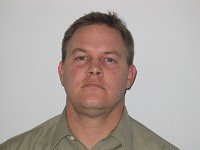3/27/07
Inside The Academy
By Vice Vela
Randall Hinton, the school director of Royal Gorge Academy, aka Royal Peak Academy, has been arrested on allegations of child abuse.
The article below talks about a foster child who was put into this residential treatment program because he ran away. The question is: Can foster parents place children into residential treatment centers? Especially a facility where the director has been suspected of abusing children for years. And a facility that is associated with the World Wide Association of Specialty Programs and Schools (WWASPS). They will deny association, however, they do send children to Tranquility Bay in Jamaica, a facility known as abusive and a facility under the umbrella of WWASPS. Internet search results for Tranquility Bay, WWASPS, Randall Hinton, Royal Gorge Academy, and Royal Peak Academy should be indicative something is wrong and should send up a red flag.
ARTICLE:
A group of boy students sits on chairs in a small room. Facing one another, they form a circle as each one gets a few things off his chest. And then another.
Through the thin wall that separates their room and the larger, recreation area next to them, the sounds of a familiar classic rock guitar riff settles into the background of the boys’ group discussion. It’s Led Zeppelin’s “Stairway to Heaven,” being played by a student during his leisure period on his strata guitar. In a room full of teenage boys donned in mandatory dress shirts, ties and khaki pants, the music’s presence seems odd.
Ignoring the sounds from the neighboring room, the boys continue to discuss possible ways one of their peers, 15-year-old Nick, can better assimilate into a lifestyle he’s never been accustomed to. Although he’s young, Nick has been moved around from different foster homes most of his life. His current foster family sent Nick here, to the Royal Gorge Academy, after he attempted to run away from home.
Nick only has been at the school for a few weeks and is having a hard time fitting into the boarding school’s regimented culture. Some students in the circle are voicing their frustrations with his behavior, something that Nick is beginning to resent.
“This place is making it look like I have all of these problems,” he said.
The group continues, with boys civilly airing grievances throughout the session. It’s called Positive Peer Culture, and it’s at the heart of Royal Gorge Academy’s belief that students are there to help each other, to identify problems and find resolutions. For most of these students, the problems they face are heavy. Some have been away from their families for a long time. Some were on their way toward dropping out of school. Some are dealing with drug and alcohol problems.
There is no discussion of Randall Hinton, the school’s co-director who was recently arrested on charges of false imprisonment, third-degree assault and reckless endangerment. Hinton is accused of allegations that include forcing a student to lay face down on the ground with her hands facing up for several hours while not allowing her change her pants after starting her period. Hinton has been placed on leave by the school.
While those inside the Academy are not talking about Hinton, many outside school grounds are — the Hinton case has received ample media attention. Questions regarding Hinton beg questions of what the Academy is all about. For most people in the community, the school is a mystery.
For the staff, the focus is on helping kids become better kids. For most of the students, the focus is on getting through another day on their own, away from home.
Software-based Curriculum
“I want to be interviewed! Interview me.” These were the calls of a room full of girls sitting at their computers during one of their class periods. The class consisted of roughly 12 girls, full of energy and anxious to speak with a reporter, a rare visitor.
The girls, as do the boys, sit in classrooms with their backs toward the front of the desk where their instructor sits. For every half hour class during the day — students have ten classes daily — the students are not allowed to interact with one another. They face their computer screens and communicate only with the instructor who is available for questions, as well as an additional staff worker, as needed.
The strict workings of the classroom go hand in hand with other restrictions at this private boarding school. There is no television. There is no Web-surfing. No vending machines. And, there are no cell phones allowed. Students wake up and shower at 7 a.m. and “shut down” at 9:30 p.m., when they are all to be in their rooms, preparing for bed.
Each student is autonomous in the way he or she works, meaning they can work on any subject whenever he or she wants. The curriculum is software based and self-paced. There are no lectures from the instructor and no blackboard. “It’s weird not having teacher-taught classes,” said one of the girls.
The girls are more than willing to talk about any subject, including how they got here.
“I was tricked here by my parents,” said 15-year-old Cadey. “They told me it would be a ski or snowboarding resort in Colorado.”
Cadey’s story is not unique. Many students had no idea they were coming here until they actually got here — one student claimed she thought she was being taken to a mental institution. Some experienced what one would think would be traumatic events in getting here, like Kori, who is 16.
Kori was “goober-napped” — a common slang expression used when strangers hired by students’ parents take the children to the school.
“These guys came to my school and put me in handcuffs,” she said. “They took me outside to the car and I could see all my friends with their faces against the window, watching these guys take me away. I was crying, saying I was being kidnapped. My mom said, ’No, it’s OK honey, it’s called goober-napping.”
Everyone in the room laughs at Kori’s story. Perhaps because they could all relate. Perhaps because there was a bit of catharsis involved in laughing at each other’s rather emotional stories.
But, not everyone is laughing this day.
In another classroom, a quieter room with older students, 15-year-old Erika quietly introduces herself. When telling the story of how she came to the Academy, she breaks down and cries. She’s only been at the school for a week.
“I miss home,” she said. “I want to go home.”
Honors Society Students
The Academy has been open for just more than a year. It houses 40 students, split evenly between boys and girls. The students’ ages range from 13 to 17. An Academy brochure states that a potential student fits a profile that may include academic underachievement, lack of respect for rules and social standards and unresolved grief reactions, such as parental divorce.
Parents pay a monthly tuition of $2,750 a month to send their children here. Often, the students come from wealthy backgrounds whose parents hold lofty positions in different parts of the country. This, school officials say, requires special attention to preventing the identities of the students being made public. This is why only first names are being used in this report.
“There would be very serious repercussions,” said Bob Martin, an academic administrator, “We sometimes have very high profile students here. If someone, say, had a vendetta against a student, we have to protect them.”
In fact, the first thing that is noticed when entering the academic administration area of the school are the photos of Academy honors society students. Their faces are framed, but their first and last names are nowhere to be found.
This includes 17-year-old Ryan and 16-year-old Stephanie. They are two of the best students at the school; in fact, Stephanie has received inquires from schools including Duke, Southern California and Notre Dame.
But, success for these two was difficult to achieve prior to coming to the Academy.
“My parents had no idea what I was doing or thinking,” said Ryan. “I lied so much I didn’t even know what the truth was.”
Stephanie says she has learned to grow out of her teenage angst since coming to school here.
“The best part about being here is growing up,” she said. “I’ve matured a lot and I respect people more.”
Jeff Kwallek, a school supervisor, attributes success stories like Ryan and Stephanie’s to the Positive Peer Culture that the school emphasizes.
“They learn to help each other to find solutions and learn to accept help,” he said.
Kwallek says school staff rarely intervene in student problems.
“If a kid acts up in class, the kids will stop and say, ‘We need to have a problem meeting right away,’” Kwallek said. “Then, they talk about things and usually the person who was causing a disturbance says, ‘I’m sorry I was messing up,’ and then they move on.”
Brian Lemons, who opened the school with Hinton, said events in his own childhood motivated him to get involved with children.
“I knew what it was like not be happy at that age,” he said. “Those are tough times for kids.”
Lemons said he was unable to talk much about Hinton, because of legal concerns. But, he did offer his initial reaction to the charges.
“I was surprised,” he said. “A lot of students were surprised as well. Some of our parents wrote letters of support.”
Lemons said staff hired goes through a strict background check and that all teachers hired are licensed in Colorado. While not specifically referring to Hinton, all staff members say steps are taken to ensure the safety of the children, including making sure a staff member is never alone with a student — three people are required to be together at all times.
While Hinton faces charges, Lemons wants to move forward.
“We’ll get through it and let due process take its course,” he said.
Vic Vela can be reached at vvela@ccdailyrecord.com.
skip to main |
skip to sidebar


Sharon Estes gives a computerized algebra lesson on Tuesday. Estes teaches math at Royal Gorge Academy.

Randall Hinton

Sharon Estes

Sharon Estes gives a computerized algebra lesson on Tuesday. Estes teaches math at Royal Gorge Academy.
Blog Archive
About Me

- Isabelle Zehnder
- is a Certified Family Coach who has over 25 years mentoring, coaching, and advocating for families.
